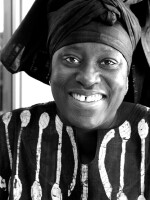RENEE MONTAGNE, host:
Thousands are reportedly fleeing Zimbabwe as the ruling party goes after its political opponents. The opposition party and human rights groups report activists have been killed or beaten and rounded up during a political stand-off with no end in sight.
It began three weeks ago with a presidential vote that apparently did not go the way of Zimbabwe's long-time ruler, though no one knows for sure since the country's election commission has refused to release the results.
NPR's Ofeibea Quist-Arcton is in Zimbabwe's capital, Harare, and joins us on the line to talk about that.
And, Ofeibea, tell us the details or some of the stories you're hearing about what's happening.
OFEIBEA QUIST-ARCTON: Well, Human Rights Watch, which is based in New York, has issued a report saying that President Robert Mugabe's party were running torture camps, where apparently opposition supporters are taken for beatings. The Opposition Movement For Democrat Change says about 400 supporters have been arrested. It says 500 have been attacked. It says 3,000 families have been displaced.
They've been saying for a while now that the government is waging a campaign of violence and intimidation and fear against the people, especially those who are deemed to have voted for the opposition. So that's what the opposition side is saying, and, of course, credible human rights organizations.
MONTAGNE: And the Zimbabwe government?
QUIST-ARCTON: It's saying very little, other than that the election commission is meticulously verifying elections. But still, of course, no presidential vote results.
MONTAGNE: Zimbabwe marked its 28th anniversary of independence from Britain last Friday. And that means 28 years of Robert Mugabe as its leader, because he's been the only one since independence. How was that date marked there in Zimbabwe?
QUIST-ARCTON: If you were a Robert Mugabe supporter, you were out celebrating in the stadium where he started targeting the same old enemies - the West. Britain, the former colonial power, which he said was trying to re-colonize Zimbabwe, the opposition, which he dismissed again as puppets of the British which were being used to buy Zimbabweans. And that was really the tenor of the speech. There was no mention of the elections, virtually - certainly no mention in the delay of the presidential results.
Now, just three weeks ago, it seemed that President Mugabe was on the back foot. He had lost the parliamentary vote to the opposition, his first real electoral defeat. And Zimbabweans believed that the country was ready for change.
But since then, the government seems to have got its right foot back, and it is talking about a run-off election in the presidential vote between President Mugabe and the main opposition leader, Morgan Tsvangirai. But we don't even know what the outcome of that presidential vote is yet, more than three weeks after the elections happened.
MONTAGNE: And Ofeibea, there's been lots of criticism from the West and even there in southern Africa of how Robert Mugabe is handling this. How long can it go on?
QUIST-ARCTON: That's the big question, Renee. I mean, we have had Ban Ki-moon, the secretary general of the U.N., saying this has got to end. We have got to have these results. But it seems that the government is determined to go its way and decide what will happen when.
Meanwhile, Zimbabweans are struggling. An opposition leader said Zimbabweans do not have violence in their DNA. They don't seem to have a stomach for a fight. More importantly, though, they seem to be trying to find food to fill their stomachs in a country that has virtually no food, inflation running into six figures, and people looking for medicine and trying to struggle to keep up daily rather than fight any sort of political battle at the moment.
MONTAGNE: Ofeibea, thanks very much.
QUIST-ARCTON: Always a pleasure.
MONTAGNE: NPR's Ofeibea Quist-Arcton, speaking to us from Harare, Zimbabwe. Transcript provided by NPR, Copyright NPR.







